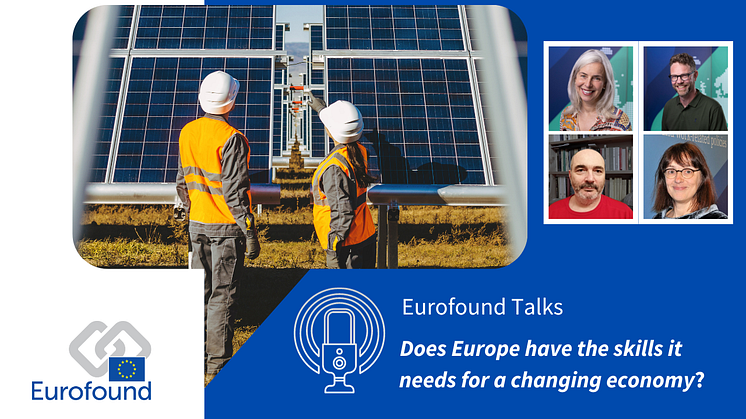
News -
Self-employment in Europe has stagnated and could decline in the future
The proportion of self-employed workers in the EU has not increased over the past two and a half decades, and fell from 15.4% to 13.7% between 2010 and 2022. This reduction was primarily driven by falling self-employment among men and the imbalance between labour market exits among older self-employed workers and the creation of new self-employment.
Using data from the European Working Conditions Telephone Survey 2021, Eurofound’s new report Self-employment in the EU: Job quality and developments in social protection examines the working conditions of different groups of self-employed people and analyses measures taken at Member State level to better protect these individuals against the risks of unemployment, workplace accidents and sickness. It also presents lessons learned from measures implemented during the COVID-19 pandemic.
The report looks specifically at the situation of the dependent self-employed. These are defined as having a working relationship where the worker is formally self-employed yet under conditions of work similar to those of dependent employees. In 2021, 9% of the solo self-employed were dependent on just one or a few clients, had little or no autonomy over the running of their business and could therefore be classified as economically dependent. Solo self-employed women were more than twice as likely to be economically dependent than their male counterparts. Eurofound data show that economically dependent self-employed people were twice as likely as employees to indicate having difficulties in making ends meet.
Such differences stem partly from the high share of self-employment in the sectors worst affected by the pandemic. However, they also result from differences in social protection coverage and pandemic relief measures. Even if the share of self-employed benefiting from such relief measures was high due to their sectoral distribution, the duration and level of income replacement benefits granted were lower and eligibility often more stringent than for employees.
Speaking on the publishing of the report, Eurofound Research Manager Tina Weber, noted that, given the political emphasis placed on extending social protection to atypical workers and self-employed in the context of blurring boundaries and more frequent movements between employment statuses, ‘EU Member States have already begun to broaden access to social protection for the self-employed so as to create an appropriate safety net to cushion the impact of key risks. However, differences remain between groups of self-employed workers and between the self-employed and employees. This should be addressed to ensure not only formal but also effective and adequate coverage, while avoiding disincentives to the creation of high-quality self-employment. Greater transparency and simplification could also increase take-up rates.’
- Download the report: Self-employment in the EU: Job quality and developments in social protection



